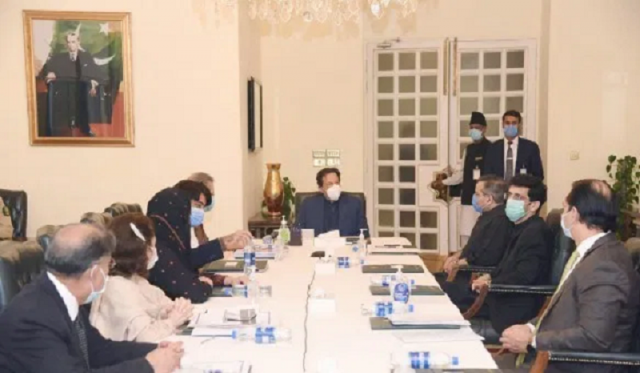The Single National Curriculum (SNC) for grades one to five has gotten a lot of attention since the new textbooks were published. Many concerns have been raised about the pictures on the covers, as well as about the actual content inside the textbooks. After going through the textbooks, I’ve come to this conclusion, even though the curriculum has received negative feedback, the books are not as bad as the outcry surrounding them. Yes, the curriculum is definitely not perfect but to deem it an entirely bogus project would not only be unfair but also an ill-informed decision.
In my opinion, nothing remotely substantial has come out of Imran Khan’s politics but he may be onto something with this curriculum. Whether or not the SNC will help achieve the objectives Khan has set out to achieve, only time will reveal.
Let me also tell you why I am for the curriculum. I believe it is a great initiative to bridge the gap between children from different socio-economic classes and it levels the playing field when it comes to education at least. Having private and public schools along with madrassas teach the same curriculum is, in fact, a rational move.
I, however, do not support the move to teach all subjects in Urdu. Children in grades four and five, who were previously studying social studies (now muashrati uloom) in English till now will now be forced to study them in Urdu. Till they get to the sixth grade at least and then back to English. If the objective of this is to ensure that children are fluent in the national language, then steps need to be taken to make sure that the English content being taught is exceptional.
Grammatical errors have been common in the previous textbooks from provincial education boards. If such mistakes are still made, an entire generation may be inadept at communicating internationally. We need to give attention to the English language, especially if we want to be better integrated into the world.
Another point of contention with the textbooks themselves is, how each chapter starts with Bismillah (in the name of Allah), which would be great if all the children reading the books were Muslim. Incorporating religion into the books really goes against the very foundations on which this country was built. Schools should instead, have separate classes for religious studies that not only include Islam but other religions that are practised in the country as well. This may also lead to a more inclusive society.
Interestingly, it is also illegal to force any student to study a religion they do not follow. Article 22 of Pakistan's Constitution states,
"Safeguards as to educational institutions in respect of religion, etc.
(1) No person attending any educational institution shall be required to receive religious instruction, or take part in any religious ceremony, or attend religious worship, if such instruction, ceremony or worship relates to a religion other than his own."
Specifically speaking of the imagery and various pictures shown on the textbook covers and inside pages, I would argue that women are shown in different roles and professions, and religions are explored in a positive manner (I know this because I’ve actually gone through the books myself).
In addition, good manners and behaviour are emphasised upon, which in my opinion, play an integral part in raising empathic children. As far as women’s dressing is portrayed in the books, let me tell you that there is an equal number of girls in headscarves and without, which is simply a fair representation of the Pakistani culture. Many young girls don the headscarf from a very young age as part of the country's culture.
Perhaps what Punjab needs to focus on at this time is to ensure that the SNC is sustainable. They need to put a proper training system in place for teachers, principals and deans that teaches them how to not only tackle the new curriculum but also how to deal with the problems students may face. Unless an organised system is put in place to prepare registered, certified teachers, the chances of our education system becoming stronger are very slim.
I’m certain there are plenty of issues that can and need to be addressed about the new textbooks and perhaps introducing a new curriculum at this point in time may have been a bit selfish on PTI's part but we can hope for the sake of our children that the SNC will be executed in good faith.



COMMENTS
Comments are moderated and generally will be posted if they are on-topic and not abusive.
For more information, please see our Comments FAQ